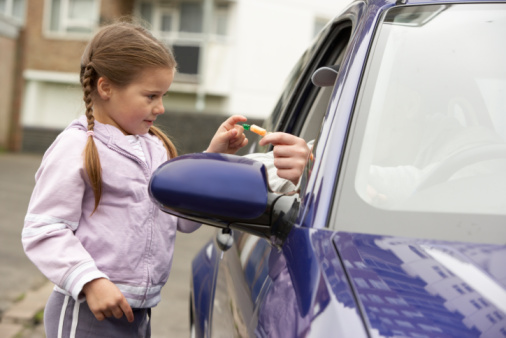On the one hand, you want your child to learn how to meet new people and make new friends. On the other hand, you want him or her to stay safe, which involves staying away from people who might intend to harm your child.
So, how do you balance these two concepts?
First, according to ABC News, the National Center for Missing and Exploited Children encourages you to stay away from the term, “stranger danger.” It’s certainly a catchy phrase, especially since it rhymes, but there are three reasons why the group says the phrase doesn’t work well:
- Children don’t necessarily understand the concept of a “stranger.”
- A child has greater odds of being harmed by someone he or she knows, perhaps even a family member, rather than a stranger.
- If a child is lost or otherwise needs help away from home, he or she will likely need to talk to strangers to ask for assistance.
To find out how children define a stranger, ABC News talked to students in grades two through four. All of the children were aware of the term “stranger danger” but had different interpretations of what it meant. One child, for example, thought the term meant not taking candy from people you didn’t know, while another said you shouldn’t help or trust strangers. Another one thought it would be OK to ask someone with a security guard badge for help, even though this action meant the child would talk to strangers.
Tips on Talking to Your Child About Potential Danger
Parents.com shares three strategies for talking to your children about strangers. First is to choose your words carefully. Rather than using the word “stranger,” one expert suggests referring to them as “tricky people.” This group includes people both known and unknown who try to trick children in ways that aren’t safe.
Role-playing can be helpful, and you can ask your children how they would respond if someone offered them candy or asked for help in searching for a lost puppy. Listen to answers and respond, “While most people are good, there are some people who are not and do not keep kids safe.” Children often learn best if role-playing is physically acted out.
Create a hard and fast rule that your children cannot go anywhere with anyone without first getting your permission. Teach your children how to ask for help if they get separated from you in public. This can include asking a trusted adult, such as a cashier, for help. If that isn’t doable, seek out another mom who is shopping with children.
Also teach your children to trust their instincts. One teacher tells students that if a situation makes the children feel uncomfortable, this is a sign to remove themselves from the situation. In other words, when children feel uncomfortable, it’s important for them to trust their instincts.
The National Crime Prevention Council offers more tips, including to point out safe places where your children can play, and encourage them to play in groups. Make sure your children have your work and cell phone numbers. Also, talk to your children about being assertive, teaching them to say “no” to adults when in potential danger.
Dangerous Situations
In most situations, you’ll be teaching children about how to avoid potential danger. It’s also important to talk to your children about what to do in a situation that actually does turn dangerous. For example, if a person grabs your child or follows him or her, tell them to shout, “I don’t know you!” and otherwise make noise.
Teach children to run away from dangerous situations and, when possible, seek help from a trusted adult. Ideally, this would be a reliable family member but can include someone in a police or fire station, store, library or friend’s house.




